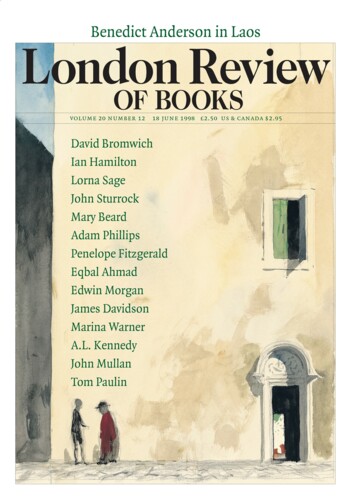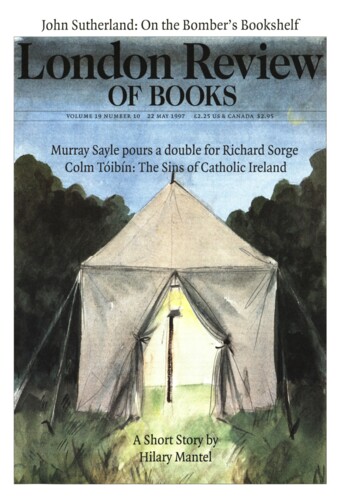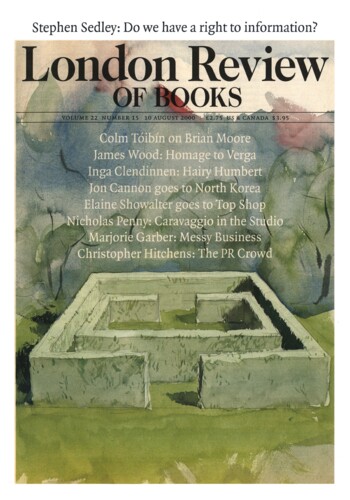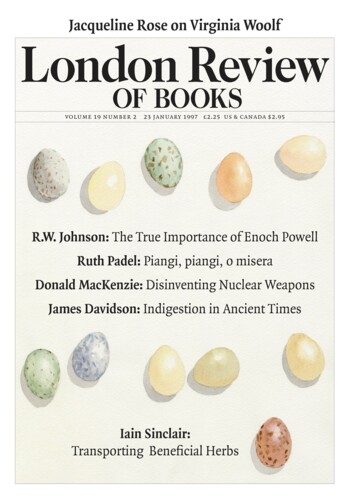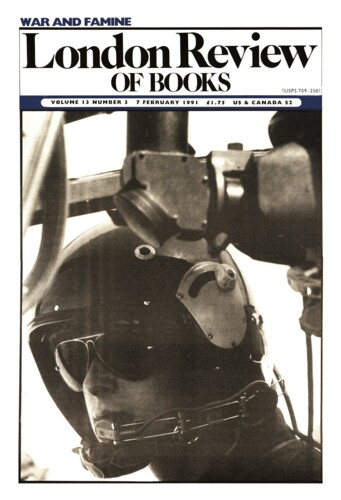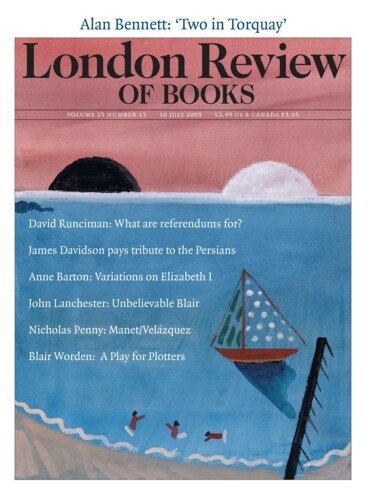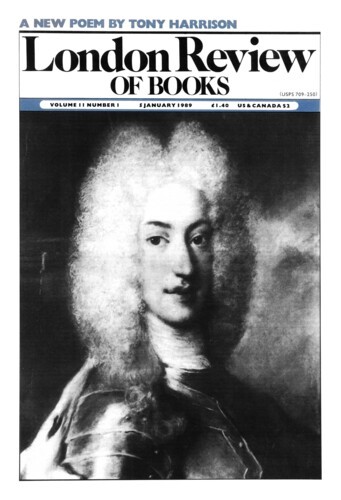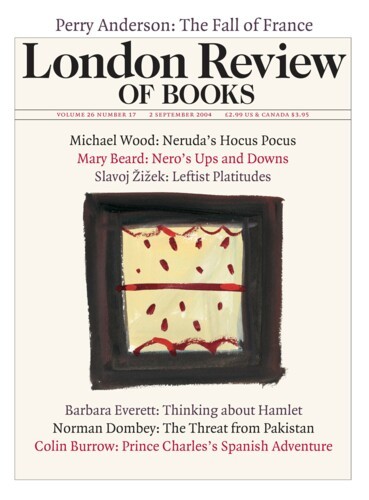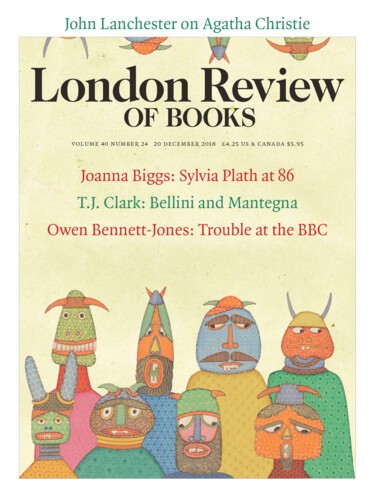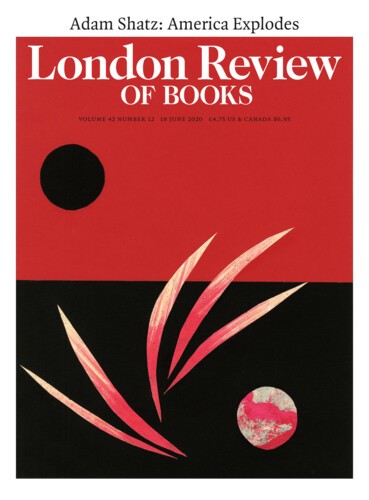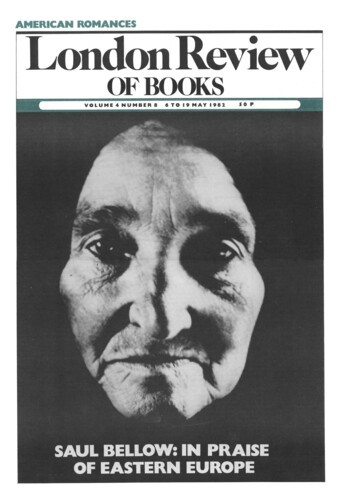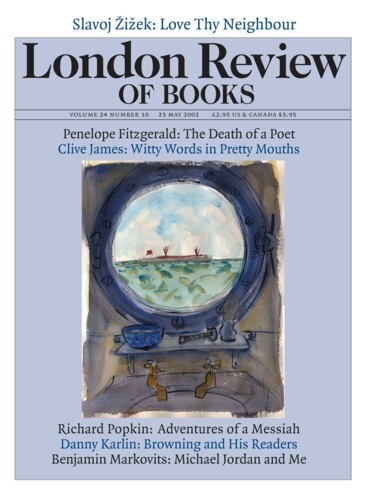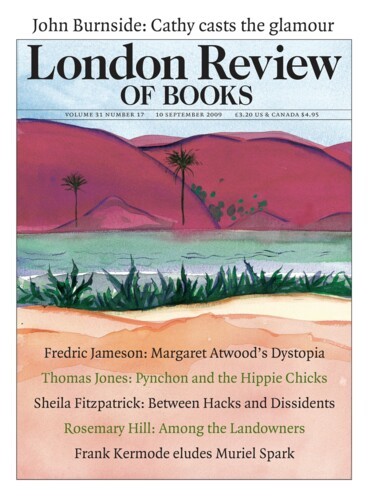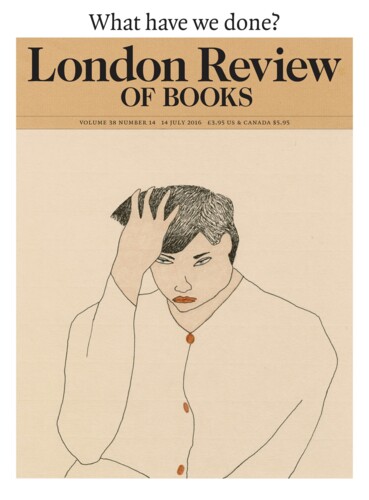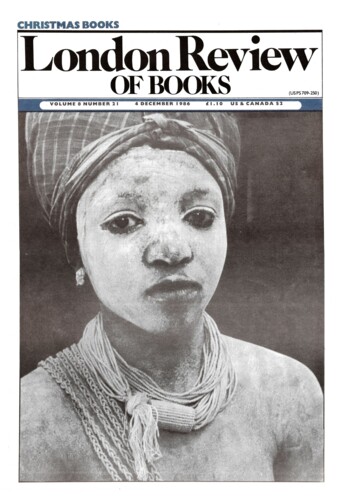Suffering Souls: Ghosts in the Middle Ages
Marina Warner, 18 June 1998
Many of the phantoms explore their own condition, pondering what it means to be a ghost. One revenant explains that he can speak, though tongueless, by resonating the words in his chest; another that the penalties he suffers are real, the fires of purgation all too corporeal, and though he has no body, he feels them terribly; yet another that the dead continue to know their friends from the world above, but make no other acquaintance in the underworld.
